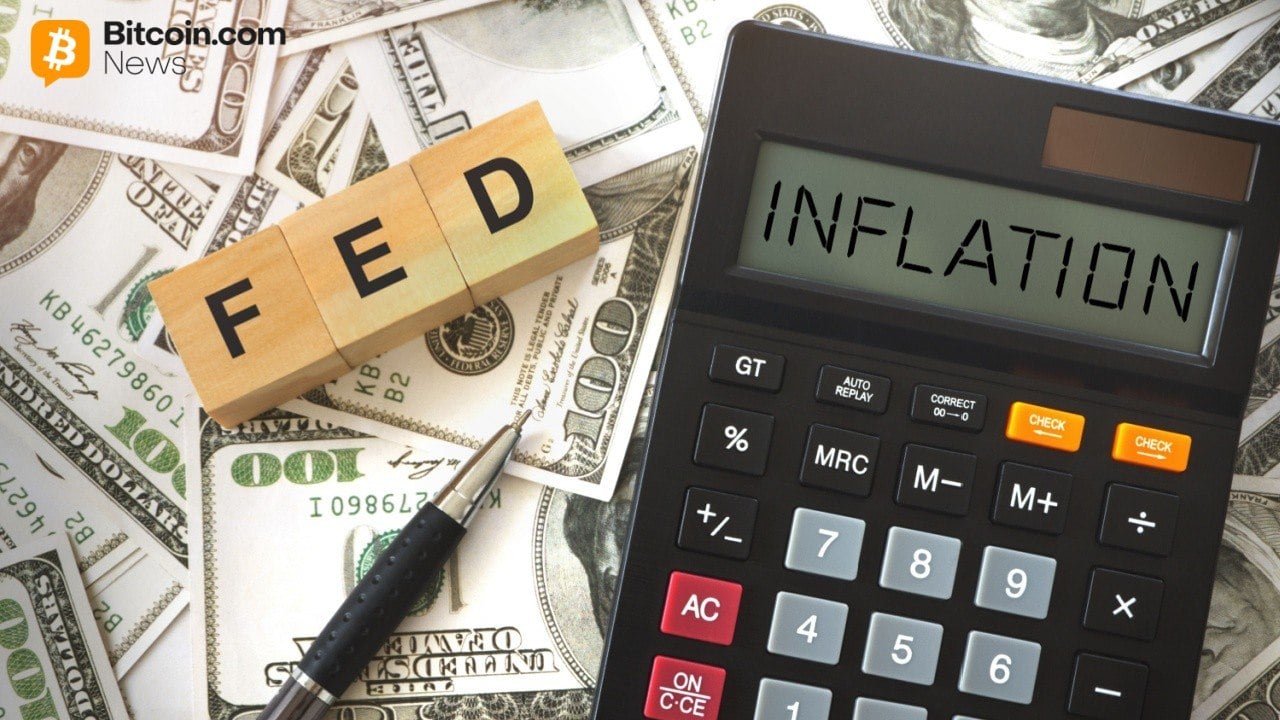It’s been nearly six years since the SARS-CoV-2 virus spread into the United States, ushering in the pandemic that would come to define the first quarter of this decade.
Considering how recently it occurred and how much it affected every facet of American life, it is somewhat remarkable how absent the pandemic and the government’s response are from today’s news cycle, the daily political fights online and in the media, or in popular culture and fiction.
Even when the pandemic is brought up and re-examined, the focus is usually on the necessity and nature of the government measures put in place to control the spread of the virus or the public’s level of compliance.
That is, to be sure, a worthwhile debate. But the government’s economic response is often left out, which can give the impression that—as controversial as the lockdowns or vaccine mandates might have been—the quick and extensive mobilization of the government’s considerable fiscal and monetary powers was one uncontroversial success story of the covid years.
It wasn’t, and the lack of controversy surrounding it is disturbing.
For most of American history, there had been a fairly consistent understanding that it’s wrong for the government to step in and help a company when it was suffering economic losses or facing bankruptcy.
Beyond that being an avenue for cronyism and corruption, economic theory has also made it very clear for hundreds of years that economic losses are a necessary element for economic growth.
The economy is, after all, a process. And specifically, it’s a process for producing goods and services that people want to consume. In a market unhampered by government, every part of every line of production is geared towards eventually making something that people value enough to pay for. That’s the whole point.
For an economy to grow and everyone to become wealthier, some people need to take on the role of an entrepreneur. Entrepreneurs reallocate resources to new lines of production or refine existing lines to account for factors that are constantly changing—things like technology, capital availability, and consumer preferences.
In our role as consumers in a truly free market, we can opt out of any exchange for any reason. So entrepreneurs can only make profits if they offer a good or service consumers’ value enough to pay more for than the business had to pay to produce it. When they don’t, they are stuck with the losses. Economic losses are a very motivating signal that the resources used in a line of production would be better used elsewhere. They are crucial for reorganizing the economy to better meet the needs and wants of the end consumer—which, remember, is the entire purpose of the economy in the first place.
To be clear, the federal government has been intervening in the economy since it was founded. And especially since the beginning of the twentieth century, government officials have been using state power to warp the economy in ways that benefit themselves and their well-connected friends in various industries.
However, except for some isolated bailouts that were highly controversial at the time, the federal government had mostly steered clear of rescuing businesses because they were struggling or facing bankruptcy. That is, until the 1980s.
During the oil boom of the 1970s, a wily Oklahoma banker created and sold risky packages of loans to oil companies that stood to make his clients a lot of money as long as the price of oil kept going up. But when oil prices began to fall in the early 1980s, his bank failed.
At first, the government was unwilling to help anyone who bought into the scheme escape the consequences of their decision until it became clear that its biggest customer for these packaged oil loans was a much larger bank called Continental Illinois. To avoid the failure of a small bank turning into a run on a much larger bank—which was deeply enmeshed with the rest of the nation’s banking system—the government offered Continental emergency credit and ensured unlimited protections for its depositors.
With that bailout, the precedent that some banks are “too big to fail” was born. A few years later, in 1987, the stock market experienced what was, at the time, the worst stock market downturn since the infamous crash of 1929. In response, the new Federal Reserve Chair, Alan Greenspan, said that he would use the power of the central bank to serve as a source of liquidity and support for the financial system. And that support remained after the “bad times” following the 1987 downturn went away.
This new priority came to be called the “Greenspan Put.” It ushered in our current era of “easy money” and “financialization” as the government brought about what was, in effect, a wartime economy—not to defeat some foreign enemy, but to prop up and support the financial sector.
Then, when the housing bubble fell apart in 2007 and 2008, many investment banks were suddenly in the same situation that Continental Illinois had been in thirty years before. Citing the idea that these banks were “too big to fail” and that it was the federal government’s role to support the financial sector, Treasury, Congressional, and Federal Reserve officials swooped in to hand unprecedented bailouts to the Wall Street firms and some other well-connected companies that had been teetering on the edge after the risky lending practices the government had been encouraging them to adopt blew up in their faces.
The bailouts did keep many of these firms from failing, and the Fed’s credit expansion did much to encourage producers to recommit to the malinvestment that was being uncovered during the onset of the recession. But these weren’t real fixes. By socializing losses, the government was only incentivizing firms to take on more risk. And, because credit expansion is what causes recessions in the first place, using it to address the 2008 recession locked in future recessions. The federal government was forcing the public to fund measures that, at best, kicked the can down the road a bit.
Unfortunately, while some scholars, pundits, and politicians understood this, the loudest cries of protest came from progressives whose problem with the bailouts was that they had been too limited. Their issue with the government’s response to the so-called Great Recession was not that Wall Street had been bailed out, but that only Wall Street had been bailed out.
So when the economy again found itself in a dramatic downturn as governors locked the country down in 2020, the government frantically worked to extend bailouts to everybody.
The scale of the response was, again, unprecedented. Six trillion new dollars were created out of thin air and immediately injected into financial markets, credit markets, municipal government programs, and even most of our checking accounts.
Again, all this did was put off and exacerbate much of the economic pain made necessary by the government’s destructive lockdowns. But this time, the progressive left was happy. By devoting money to a lot of progressive pet projects, the political establishment was able to get many of the loudest voices at universities, in Hollywood, and in the news media to join them in declaring the government’s economic response an unmitigated success.
Even as price inflation rose to similarly historic levels in the years following, establishment “experts” and their progressive allies teamed up to blame the higher prices on vague temporary “supply shocks” or an unexplained jump in “corporate greed.”
The absurd narrative that these groups want us all to believe, and that seems to be generally accepted by a disturbing number of people, is that the absolutely unprecedented amount of money printing and government spending that happened during the pandemic was a drastic but necessary emergency action due to extreme and dire circumstances, and that it had no bad consequences whatsoever.
The lesson they want us to take away from 2020 is that, in addition to stabilizing prices and minimizing unemployment, the Fed can also be used to rescue the financial sector, and now small businesses and municipalities too, when there’s a downturn.
But if one really accepts that the Fed can just do that with no bad repercussions, it raises the question: if economic problems can be solved by printing money, why do we still have any economic problems?
This is the paradox at the heart of central banking, and every other scheme that promises something for nothing.
The truth is, of course, that creating more currency can never make society wealthier. All it does is make society as a whole poorer while changing who experiences the effects of economic problems—usually placing that burden on future generations.
The good news is that, at the end of the day, all that’s required to escape our recurring nightmare of increasingly intense economic recessions is for enough of the public to understand that the government support they’ve been tricked into seeing as a cure to economic pain is actually the cause of these crises in the first place. And changing an idea in people’s heads is certainly an attainable goal.
But the way much of the public understands the government’s economic response to the covid pandemic makes it clear that there is still a lot of work to do.



























